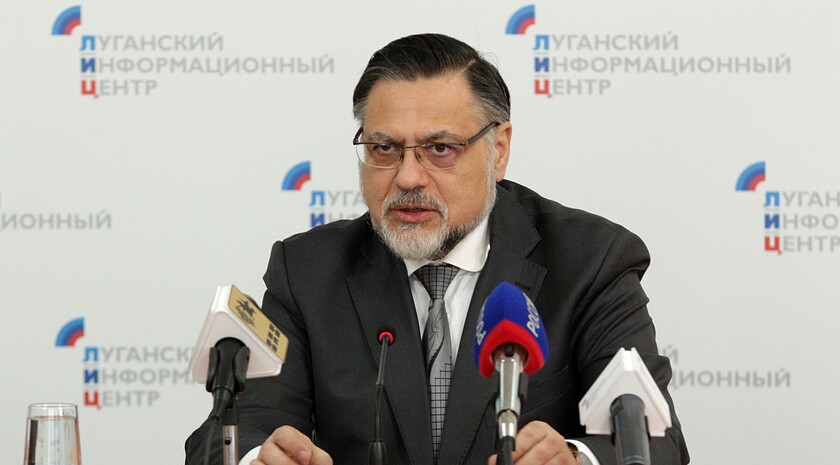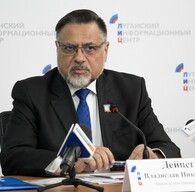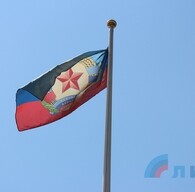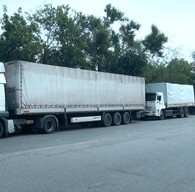The Donbass Republics’ representatives at the Contact Group session on Thursday demanded that Ukrainian army chief Valery Zaluzhny disavow his statement on the possibility to open “return fire” and use attack drones without authorization by the High Command, Lugansk People’s Republic representative at the Minsk talks, LPR Foreign Minister Vladislav Deinego said.
“The Donbass representatives demanded explanations from Ukraine at the Contact Group meeting regarding the statement made by the Ukrainian army commander-in-chief,” Deinego said. “In his statement, General Zaluzhny said that Ukrainian armed formations fighters have permission to open “return fire” and use attack unmanned aerial vehicles on the contact line without any confirmation from the High Command. This is a direct violation of items “e” and “a” of the Measures to Strengthen the Ceasefire, dated July 22, 2020.”
“The Ukrainian representative was asked four times to answer a simple question: has the Ukrainian army command issued a decree to disavow the effect of the “Measures,” but he did not reply even once,” he said.
“At first, Mr (deputy head of the Ukrainian delegation at the talks Alexey) Reznikov alleged that the question had nothing to do with security and had to be considered together with “miscellaneous” matters,” Deinego said.
When it was no longer possible to dodge, Reznikov said that ‘the commander’s statements are no more than media headlines, comments, speculations or guesses’ and that one did not have to pay attention to bloggers,” he said.
“But does the armed forces commander have the right to make his personal “comments” in public space, especially if they contradict the official position of the leadership of the state?” LPR foreign minister said.
In his opinion, “the least thing Zaluzhny must do after such remarks is to resign or disavow his statements.”
“The representatives of the Republics demanded that the (Ukrainian army) commander-in-chief disavow his words and that every serviceman on the Ukrainian side of the frontline could understand that his intention to “return fire” at Donbass is a direct violation of the accords signed by his country, and the orders by his command,” Deinego said.
The Additional Measures to Strengthen the Ceasefire, agreed by the Contact Group members and effective since 00:01 July 27, 2020, ban offensive and commando operations, use of unmanned aerial vehicles and deployment of heavy armaments in or in proximity to residential areas etc. They envision punishment for violators and the use of the coordination mechanism to respond to ceasefire violations. Return fire is allowed in case of offensive, if the order is given by the leadership of Ukrainian forces or DPR and LPR People’s Militias after the unsuccessful attempt to use the coordination mechanism. The Contact Group shall be notified about such orders.
The Ukrainian government launched the so-called anti-terrorist operation against Donbass in April 2014. Conflict settlement relies on the Package of Measures for the Implementation of the Minsk Agreements, signed on February 12, 2015 in the Belarussian capital by the Contact Group members and coordinated by the Normandy Four heads of states (Russia, Germany, France and Ukraine). The UN Security Council approved the document by Resolution No 2202 of February 17, 2015 and called upon the parties to ensure its implementation.
The document provides for comprehensive ceasefire, withdrawal of all heavy weapons from the contact line, starting a dialog on reconstruction of social and economic ties between Kiev and Donbass. It also envisages carrying out constitutional reform in Ukraine providing for decentralization and adopting permanent legislation on a special status of certain areas of the Donetsk and Lugansk regions.
To facilitate the work of the Contact Group, four working groups were set up under its aegis to deal with issues of security, politics, return of internally displaced people and refuges, as well as with social, humanitarian, economic and rehabilitation issues.*i*s



